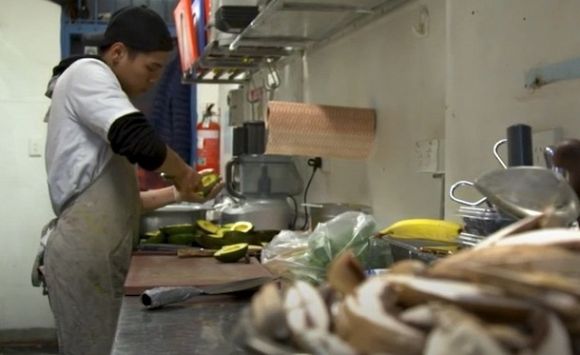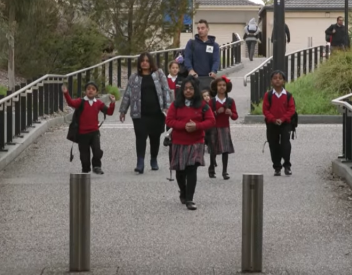Australia's immigration industry was profoundly affected by the pandemic along with life for immigrants already living here, writes Dr Mehmet Aslan.
THE EARLY DAYS of the COVID-19 lockdown in March saw many immigrants and temporary visa holders experiencing extreme stress financially and emotionally. Prime Minister Scott Morrison responded to the problems faced by temporary visa holders in a time of economic crisis caused by this dangerous, global epidemic.
He was quoted in The Conversation as stating that if visa holders could not support themselves, it was time to go home. He was responding to a major economic challenge. Many temporary visa holders replied that this would create extremely difficult conditions for them. The Government also excluded them from JobKeeper and JobSeeker. A great proportion of these temporary visa holders were students who had lost their part-time employment. This made it almost impossible for them to pay rent, bills and to purchase other basic necessities.
Australia has the OECD’s second-largest immigrant workforce. International education in Australia is a major industry worth almost $39 billion and is Australia’s fourth-largest export. Australia has a total of 2.17 million people on temporary visas.
There are some very concerning statistics regarding temporary visa holders.
A survey conducted in late March and early April found:
- 65% lost their job;
- 39%could not cover basic living expenses;
- 43% missed regular meals; and
- 34% became homeless or faced eviction.
The economic importance of immigration
Australia is extremely dependent on immigration to expand the economy and provide employment. Australia’s recent record of excellent economic growth has relied on high levels of immigration. A majority of immigrants on temporary visas have come from Asia and Oceania.
It is an interesting fact that Australia has around half a million students on temporary visas. The economic contribution of these students is vital to Australia’s economy.
In evidence, Dr Liz Allen, a demographer at the Australian National University, states:
“Migrants contribute to demand and supply sides of the economy and bolster the socioeconomic wellbeing of this nation in ways many don’t realise.”
According to Shane Wright, reported in the Sydney Morning Herald, the Government is forecasting a 30% lower number of immigrants coming to Australia in 2020 and this is expected to increase to around 85% lower in 2021. This expected drop in immigration is most likely to delay Australia’s economic recovery and increase unemployment.
Australia is a very successful multicultural society with around 10% of arrivals in the past ten years coming from overseas. In total, more than a quarter of our current population was born overseas and almost one in two have a parent born overseas. These immigrants have made important economic contributions to our economy with their need for housing, services and income generated by their employment.
Contrary to popular belief, migrants do not take local jobs. In fact, migrants work in areas where it is difficult for employers to find employees. Migrants also fill the demand for specific skills that are required by some sectors of the economy.
Any cuts to immigration will have negative consequences for economic growth.
Abul Rizvi, a former deputy secretary of the immigration department, reports in The Guardian:
“The virus and the drop in net migration will combine to hit us very, very hard.”
He continues, noting that Australia’s migration program targets younger people and that these people will have more children in the future. Migration has made Australia a country with a low median age of 37. This relatively young median age is a positive factor for the economy as these young people contribute to our society.
Political and emotional effects
COVID-19 has resulted in drastic cuts to immigration. This has had damaging emotional effects on temporary and permanent visa holders. Temporary visa and permanent visa holders have had great emotional stress caused by loss of income.
Permanent residents can no longer bring their family members to assist them in Australia. These visa holders cannot afford the limited flights available. This will prevent family reunions and any travel back to assist family. This contributes to problems with their emotional wellbeing.
Immigrants from areas with great political instability and with severe economic problems can apply to come to Australia on the Safe Haven Enterprise Visa (SHEV). A Monash University paper refers to the case of Adonay from Eretria where he has a SHEV but cannot reunite with his family.
Adonay states:
“The main thing that disturbs me that I can’t control is missing my family. Every day and every night, I think about them.”
Adonay’s situation is made more difficult by COVID-19 restrictions.
SHEV holders cannot travel and many are unemployed. They cannot apply for the Government’s Jobseeker program and this causes additional economic, social and mental health stress. Furthermore, economists have forecast rising unemployment rates in all categories among bridging, safe haven enterprise and temporary protection visa holders. These figures are expected to increase from 19.3% to 41%.
Even with Australia’s success in preventing the spread of COVID-19, there are still many restrictions in place for Australian citizens and immigrant visa holders. The risk of virus transmission to the broader Australian community is high and this is not a time for complacency. South Australia has had a very successful health program to prevent the spread of COVID-19. In spite of all the strict measures in place to eradicate the virus, there has been an alarming recent outbreak.
All the social problems associated with an outbreak are again apparent and need to be urgently addressed. Our immigrant communities are particularly at risk in a renewed outbreak of COVID-19.
Those disadvantaged social groups in the Australian economy are still at great risk, financially and emotionally. However, the current government is aware of these issues and promising to assist to ensure these groups are not forgotten. While the Australian economy is recovering slowly, only time will tell if enough is being done to protect those who are vulnerable.
Dr Mehmet Aslan is an Honorary Fellow, School of Humanities and Social Inquiry at the University of Wollongong. He received a PhD degree in Education Studies (Major) and Sociology (Minor), from Western Sydney University.
Related Articles
- The Budget confirms Morrison wants to reboot mass migration
- English language test requirement deemed a 'racist measure'
- How reliable are the population forecasts in the 2020 Federal Budget?
- No certainty 2020-21 Migration and Humanitarian Programs will be delivered
- Thousands of registered migration agents to lose accreditation with new legislation
 This work is licensed under a Creative Commons Attribution-NonCommercial-NoDerivs 3.0 Australia License
This work is licensed under a Creative Commons Attribution-NonCommercial-NoDerivs 3.0 Australia License
Support independent journalism Subscribe to IA.















